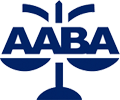for what comes next...
Mediation Services
Mediation: A Custom Fit and Best Kept Secret
Mediation is one of a trio of tools used in Alternative Dispute Resolution (ADR) to resolve disputes. Conciliation and arbitration are the other ADR tools but mediation has the broadest application, allows a high degree of flexibility, and can be used to resolve a wide variety of disputes. It’s a useful tool for parties who wish to avoid litigation and can be used even if a lawsuit has already been filed. Mediation is consensus-driven process and works best when the parties are willing participants, committed to finding a solution to a problem.
Consensus, Control, and Creativity; and a Custom Fit Outcome
If you can make decisions, then you can participate in mediation! Mediation is distinct from litigation because the process depends entirely upon the parties reaching an agreement, rather than on a trier of fact finding in favor of one party or another, as in a judge or jury at trial. Because of this structure, participants in mediation have considerably more control over the outcome and the unique ability to solve problems using creative solutions that are well beyond the reach and authority of a judge or jury in a court of law, or of an arbitrator in binding arbitration.
Parties can use mediation to make agreements for matters over which the court has no jurisdiction or to address matters that have no legal relevance, even though they may be pivotal to the parties. For example, divorcing parents can agree on terms for funding their kids’ educations beyond high-school; or parties with businesses can agree to maintain sizeable insurance policies with named beneficiaries for a term of years; or high net worth parties can agree to craft provisions that optimize financial and tax planning benefits for both of them. Mediated agreements can also include a provision for mediation of future disputes and the allocation of associated expenses and this can mean saving time and money.
Mediated solutions are a custom fit for parties because they can actively engage in dialogue that leads to constructing workable compromises to disputes. Additionally, the mediation process can be built around the parties’ schedules which avoids cuts down on long waiting periods or protracted court procedures associated with litigation. Many jurisdictions require parties to a lawsuit to engage in court-ordered mediation and even assign a court-appointed mediator. Quite often, however, court-ordered mediation sessions tend to be scheduled very near the trial date and by that time the parties have already expended substantial resources preparing for trial. Getting involved as early as possible with mediation, especially prior to a lawsuit, helps to ensure the most benefit to participants.
Starting the Mediation Process
The mediation process begins when parties with a dispute agree to mediate. You don’t have to be involved in a lawsuit in order to take advantage of the mediation process. In fact, many use the process in an effort to avoid the cost, anguish, time commitment, and unpredictability of litigation.
The process continues when the parties select a mediator, or a “neutral” to mediate a their dispute. There are many choices and considerations in selecting a mediator and depending on the matter in dispute these considerations could include prior legal experience, subject matter expertise, technique and interpersonal skills. The most effective mediators are able to build consensus by assisting parties with identifying realistic options, weighing tradeoffs, and by forecasting the outcome of an uncertain litigation path. An effective mediator gets buy-in from the parties and equips them to carefully consider for themselves the best options under the circumstances.
Selecting the Attorney/Mediator for Mediation Services
Consider selecting a mediator with prior legal experience, also known as an attorney/mediator, for your mediation experience. The Law Office of Robin Rucker Gaillard, LLC, is just such a resource for effective mediation.
Although an attorney/mediator has legal training, he or she is not there to act as an advocate for either party nor to provide any specific legal advice. However, attorney/mediators with prior legal experience may be able to clarify and outline the risks or benefits of litigating a matter and taking it to a full trial. This is frequently enough to move parties further along in the mediation process. Additionally, attorney/mediators are skilled at narrowing and defining the issues and analyzing the consequences of various alternatives, such as related ancillary issues and enforcement of agreement terms. Because of their legal training, an attorney/mediator can consider both sides of an issue and highlight the pros and cons of each position, while remaining neutral. In instances where each party is represented by counsel, an attorney/mediator can communicate with the respective attorneys for the parties on their own terms. As an added benefit, depending on the scope of the mediation agreement, an attorney/mediator can draft a written agreement which accurately reflects the intentions of the parties.
Mediation: Best Kept Secret
The substance of what is discussed during mediation in an effort to reach a settlement agreement cannot be disclosed during litigation and the mediator generally cannot be called as a witness at trial. These attributes of mediation help to ensure an environment for parties to speak candidly about concerns, interests, and ultimate goals. Within this framework, parties are more inclined to work toward finding common ground and to freely embrace a lasting solution which each side supports. Parties are encouraged to keep mediation efforts discreet and confidential and certainly no one is entitled to know what takes place during mediation. Essentially, mediation is best kept secret so that a “safe space” is created for a resolution to emerge.
Mediation: Often Beneficial Even Short of a Full Settlement
Parties don’t always settle their disputes in mediation, at least not right away. Sometimes the outcome of mediation may be only a partial settlement and other times the parties may not settle at all. However, even a result short of full settlement provides an opportunity to begin a dialogue about the problems and sticking points or to substantially narrow the scope of the dispute. Quite often, a successful initial mediation session, though incomplete, eliminates obstacles to communication, clarifies positions, and highlights options, which eventually leads to or facilitates a final resolution. Resolution may take multiple mediation sessions.
It is important to note that at times, even mediation can become intense and for some participants, it can be overwhelming. Some disputes are just hard work and there’s no way around it. A party who becomes overwhelmed by mediation can request to pause the process, or a person who becomes dissatisfied, can even withdraw at any time. The option to pause or quit the process insures that the opportunity is balanced for everyone and helps guard against one party using the process to intimidate or exploit the other. A good mediator encourages the parties and assists them with working through the mediation process, even in the midst of acrimony or seemingly impossible impasses. It’s qualities like these that Attorney Robin Rucker Gaillard possesses and which can help you successfully navigate your mediation process.
Mediation: Helps Save Time and Money
Mediation results in custom fit solutions to disputes, uniquely designed by the parties, and is a process available to fit the parties’ timetable. An important benefit of mediation is avoiding the expense of litigation, especially a full trial. Preparation for mediation (when attorneys represent the respective parties) is critical and well worth the cost. However, litigation costs (both direct and indirect) are hefty compared to costs for mediation and may spiral out of control because of delays and the nature of the issues in dispute. Moreover, the closer parties wind toward trial, the fewer options are available to avoid trial. Therefore, it’s most practical to take advantage of mediation as soon as possible to resolve a dispute and if you are already involved in a lawsuit, to engage in mediation as early in the process as practicable. Taking these steps will help you maximize the benefits of mediation, especially conserving financial resources.
Can You Answer “Yes” to any of These? Then Mediation Services can Help:
- Are you and your spouse separated, planning to separate, or contemplating divorce?
- Is your relationship ending but you are unable to agree on a fair division of property?
- Are you and your ex-spouse already divorced but still experiencing disputes and conflict?
- Are you engaged and need to iron out financial and other matters before getting married?
- Are you and your roommate(s) having a dispute?
- Are you planning to cohabit and want to establish guidelines for financial obligations and other matters?
- Do you have children in common and want to agree on visitation and custody matters?
- Have you as parents outgrown your current child custody and/or visitation order and want to make changes?
- Are you a parent or child experiencing conflict with each other?
- Are you and your neighbor experiencing ongoing conflicts about, noise, loud music, property boundaries, dogs, over-hanging tree limbs, yard maintenance, and other matters?
- Are you and/or your siblings fighting about caring for your aging parent(s)?
- Are you the personal representative in an estate where the heirs fight with you?
- Are your family members contesting your parent’s Last Will and Testament?
- Are you in a dispute with an employee or employer about back pay, work environment, or treatment on the job?
- Are valued employees involved in a dispute that is poisoning the work environment?
- Are you in a contract dispute for goods, services, or payment and a party refuses to perform?
- Is your Board of Directors ineffective because of dysfunction and interpersonal discord?
- Do you have aggrieved members dividing your organization and sowing dissent?
- Do you want to maintain dignity and self-respect while navigating through a family law matter?
Do you want an experienced Prince George’s County attorney/mediator and needmediation services, then call the Law Office of Robin Rucker Gaillard, LLC, at 301-363-2933 and schedule your appointment.
We assist many (individual and corporate) clients with mediation services throughout Prince George’s County, including Largo, Mitchellville, Upper Marlboro, Glenn Dale, Bowie, Clinton, Greenbelt; throughout Montgomery County, including Rockville, Silver Spring, and Bethesda; throughout Anne Arundel County, including Annapolis, Crofton, Gambrills, Odenton; and throughout Charles County; Calvert County; Howard County; Frederick County; Queen Anne’s County; and Baltimore County; and we can certainly assist you. Call today to schedule your appointment.







